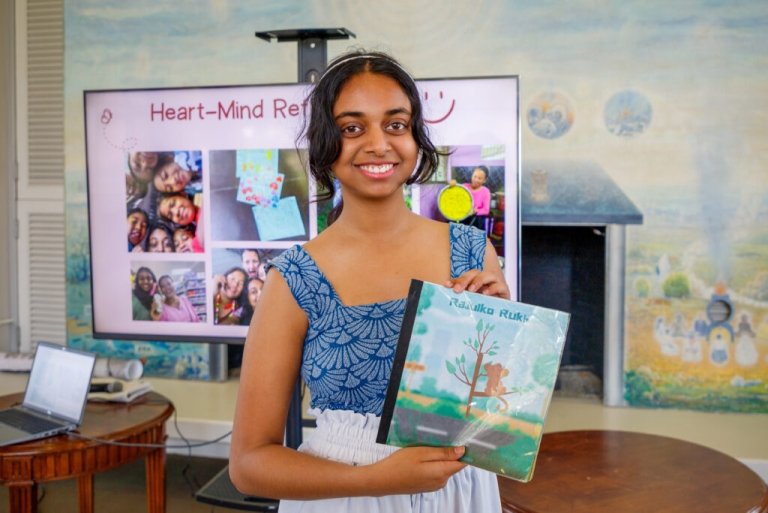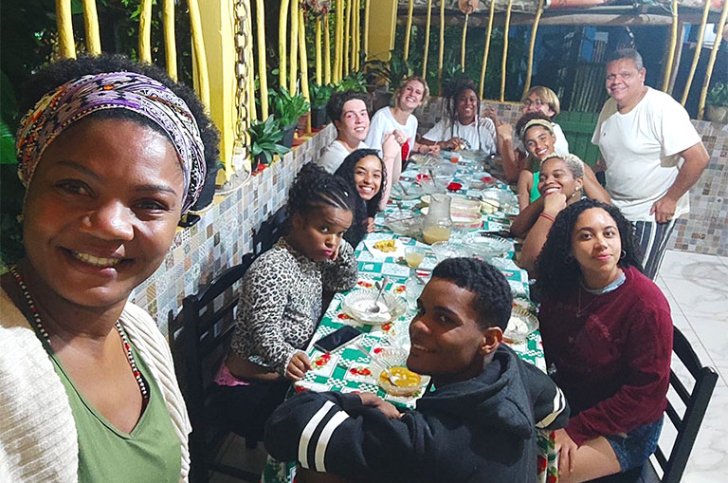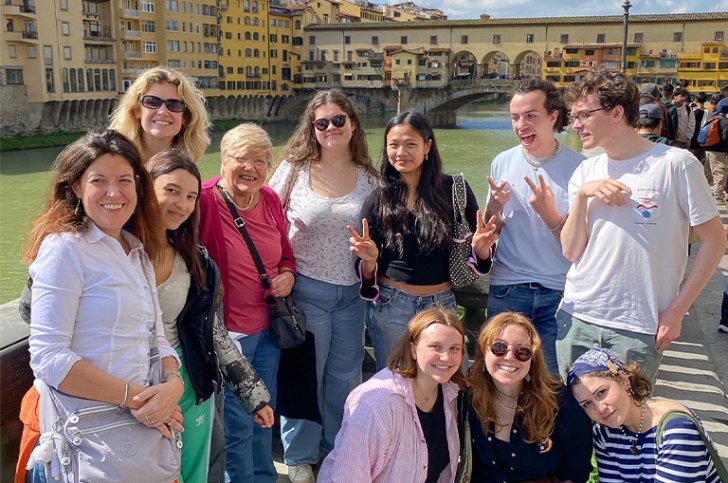For Pratya Poosala ’24, Storytelling and Radical Listening Can Improve Healthcare
Pratya Poosala ’24 adds a self-designed major in narrative medicine to her behavioral neuroscience major to combine science and the humanities.

Does storytelling belong in labs and medical offices? Pratya Poosala ’24 would argue yes.
Poosala enjoyed her STEM classes as a behavioral neuroscience major, but she still had a passion for the humanities. Her solution was adding a self-designed major in narrative medicine.
“The way that science is taught sometimes tends to be detached from the humanities,” said Poosala. “As someone interested in a healthcare career, I think it’s important we not only learn how to be good scientists and researchers but also good people—people who work with communities.”
Uniting science, humanities, and empathy
A self-designed major is not what Poosala had in mind at first. She was taking various humanities classes but didn’t have enough for an existing minor or major. Her academic adviser suggested a self-designed major in narrative medicine to incorporate her public health and creative writing classes with her interests in science.
“Narrative medicine is an intersection of humanities and science that looks at how we can use storytelling and radical listening to inform how we practice and deliver healthcare,” said Poosala.
Human-centered empathy is more essential in healthcare than ever with the rise of AI. According to a study in JAMA Internal Medicine last year, ChatGPT outperformed physicians in making empathetic responses to medical questions (45% of chatbot responses versus less than 5% for physicians).
Doctors have certainly faced systemic burnout that has exponentially increased due to the pandemic and may have affected their bedside manner. How can healthcare practitioners remember the humanity in themselves and others? How can they gain a holistic view of a patient’s well-being? Narrative medicine offers an answer.
Storytelling for mental health advocacy
Poosala seeks to leverage her multidisciplinary majors to build a well-rounded approach to mental health.
“There are a lot of factors that could account for a person’s mental health that aren’t only biological,” said Poosala. “There are social determinants. Narrative medicine looks at a person as a whole story and a whole person. You realize that it’s more than data or what they’re telling you in an appointment.”
Poosala aspires to a career in pediatric neuropsychology and working with neurodivergent children. During the Pitzer in Nepal study abroad program, Poosala did an independent research project about children’s mental health. She interviewed kids and adults from a local village and from Prisoner’s Assistance Nepal, which works with children whose mothers are incarcerated. She also wrote a children’s book in Nepali that illustrates a child’s experience during the Covid pandemic.
“It was good exposure to narrative medicine in practice,” said Poosala. “I was able to highlight the voices of caregivers and children. Storytelling is a powerful way of understanding people.”
Designing a robust and well-rounded curriculum
Poosala modeled her major after Columbia University and the University of Southern California’s narrative medicine graduate programs. She hopes to continue her education in USC’s program.
“Narrative medicine helped me combine both my interests and helped me gain more confidence,” said Poosala. “It helped me think more about neuroscience and health in a broad, more interdisciplinary way. It’s a mindset I hope to keep building.”
To declare a self-designed major, Pitzer students get approval from at least two faculty advisers and present a proposal to the College’s Curriculum Committee. The proposal must include educational objectives, a course list, and a capstone project to ensure their curriculum is as rigorous as pre-existing majors.
Poosala’s narrative medicine major includes courses such as Narrative Arts for Social Justice, Global Mental Health Seminar, Playwriting I, and Health Inequities. Making her own major gave Poosala the perspective to persevere in her neuroscience major despite impostor syndrome.
“By designing this major I was able to hold more space to think in a way that is more creative, social-oriented, and emotional,” said Poosala.
Like many Pitzer students before her, Poosala is forging her own academic path under the guidance of faculty and with a strong vision for how to make the world a kinder, more empathetic place.
News Information
Published
Author
Bridgette Ramirez


